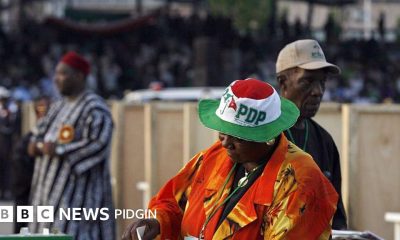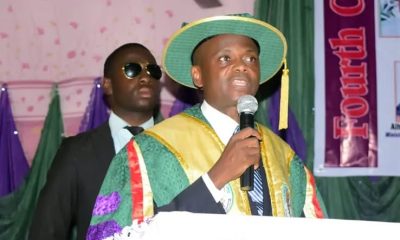President Muhammadu Buhari has continued to heighten the fears of Nigerians over the signing of the Electoral Act Amendment Bill into law which many expected would ensure credible elections in the country. The president has, after returning the bill to the National Assembly in December for review, continued to delay the signing the reviewed bill which the federal legislators had complied with his observations and requests.
President Buhari had rejected the imposition of only direct primaries on parties in nominating candidates for elections by the lawmakers, demanding the inclusion of indirect and consensus options in the electoral act. The two chambers of the National Assembly had complied with the amendment requested by the president, yet he has continued to delay assent to the bill. The delay has continued to deepen populist resentment and skepticism over the president’s willingness to allow credible, transparent, and fair elections in 2023.
The Senior Special Assistant to the President on National Assembly Matters (Senate), Babajide Omoworare, at a dialogue on the Electoral Act Amendment Bill, organized by the National Institute for Legislative and Democratic Studies in Abuja on Thursday, disclosed that President Buhari is desirous to assent to the Electoral Act Amendment Bill 2021.
Omoworare speaking on the policy dialogue – ‘Electoral Bill 2021 and Quest for Presidential Assent: Matters Arising,’ emphasized that the delay in assent to the Act is caused by the consultation that the President has been holding, saying the President Buhari is still consulting with critical stakeholders on whether to sign the electoral act amendment bill or not.
The Special Assistant to the President said that President Buhari is aware of the constitutional time constraint for assent to the bill. He said that Section 58 of the Constitution provides a 30-day time frame for the President to sign the bill.
According to Omoworare: “Consultations are going on and we are aware that despite the fact that the President needs 30 days under Section 58 within which to sign, the President is desirous of signing it, otherwise I don’t know.
“I can’t speak for him now. It is going to be as a result of the consultations whether he signs or not, but we know we have time constraint.”
The former Chairman of the Independent National Electoral Commission (INEC), Prof. Attahiru Jega, was of the view that a good law is a necessary requirement for electoral integrity. Jega disagreed with section dealing with the provisions for campaign financing by presidential candidates.
The former INEC chairman stated: “There is a good fundamental democratic principle. Candidates for presidency spending N5 billion and governors spending N1 billion for elections is a very bad law.
“To my mind, it is just one aspect out of the many good things that are in that bill. “Whether you do direct or indirect primaries, it does not matter so long as political parties are not undemocratic.
“If there is no internal party democracy, whether you do direct or indirect primaries, they will still manipulate it and the outcome will still not be favourable to the people.”
President Buhari has rejected the electoral act amendment bill seven times and stakeholders are waiting for his decision on the current amendment bill, which many feared will the eight time the president would be rejecting the bill if he decides to uphold his precedence.

 Latest2 days ago
Latest2 days ago
 Trends3 days ago
Trends3 days ago
 Energy7 days ago
Energy7 days ago
 Aviation1 week ago
Aviation1 week ago
 Latest1 week ago
Latest1 week ago
 Education7 days ago
Education7 days ago
 Business5 days ago
Business5 days ago
 Football5 days ago
Football5 days ago

